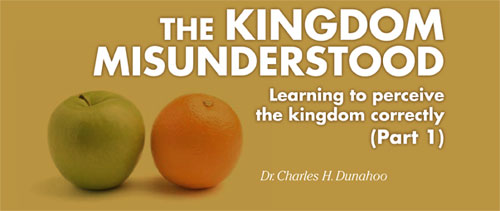Editor’s Note: This past summer the Orthodox Presbyterian Church, with whom we partner in our Great Commission Publication venture, celebrated its 75th anniversary. The OPC and the PCA formed the partnership in 1975. The following comments are from the oldest living OPC Minister and a former member of the GCP Board. With the permission of New Horizons, we have excerpted a portion of an address Dr. John Galbraith delivered at that assembly on the topic of Christian Education.
 …One thing that was very important to that first Assembly (OPC) was the preaching and teaching of the Word of God. And to do it, the assembly immediately set up three committees to help the congregations as then existed and those that would be formed. Those committees were the Committees on Home and Foreign Missions and Christian Education. The Committees on Home and Foreign Missions had one message. They were obeying Jesus Christ, who said specifically what we were to do. He said in Acts 1, “Ye shall be my witnesses unto me both in Jerusalem, and in all Judaea, and in Samaria, and to the ends of the earth.” In Matthew 28, he said, “All authority is given unto me in heaven and in earth. Go ye therefore, and teach.” That was not just a missionary goal. That teaching included the Bible, the entire content of the Word of God. We came to think of that then, and to call it the Reformed Faith, after the Reformation.
…One thing that was very important to that first Assembly (OPC) was the preaching and teaching of the Word of God. And to do it, the assembly immediately set up three committees to help the congregations as then existed and those that would be formed. Those committees were the Committees on Home and Foreign Missions and Christian Education. The Committees on Home and Foreign Missions had one message. They were obeying Jesus Christ, who said specifically what we were to do. He said in Acts 1, “Ye shall be my witnesses unto me both in Jerusalem, and in all Judaea, and in Samaria, and to the ends of the earth.” In Matthew 28, he said, “All authority is given unto me in heaven and in earth. Go ye therefore, and teach.” That was not just a missionary goal. That teaching included the Bible, the entire content of the Word of God. We came to think of that then, and to call it the Reformed Faith, after the Reformation.
Now, there is a difference between the two missions committees and the Committee on Christian Education that should be noted. Those two missions committees do their work and carry on their ministries outside the Orthodox Presbyterian Church. They preach to those who are without. The Committee on Christian Education, however, teaches and preaches to those of us who are within. This is a monumental task because it means the Committee on Christian Education teaches those who are to teach. It is a committee to teach teachers.
Read entire issue of Equip to Disciple, 4th Quarter 2011 (Acrobat Reader required).
But, a lot more than that, it is a committee that goes from the cradle to the grave. It picks up through the ministry of Great Commission Publications. It picks up through children who haven’t yet gone to school and it leads congregations to teach the scripture to those little, tiny tots. It teaches the scripture itself, and what we believe the Scriptures teach, in the Catechisms…
 …I say to you that the work of the Committee on Christian Education is the basic agency of the General Assembly. It is not more important than missions, not at all. How could you beat the importance of those words of Jesus, “Go and teach”? Those are not just important; those are essential, and we must not give them up. But what I am saying is that the Committee on Christian Education has helped our churches to teach those people who go out as missionaries and teach the Word.
…I say to you that the work of the Committee on Christian Education is the basic agency of the General Assembly. It is not more important than missions, not at all. How could you beat the importance of those words of Jesus, “Go and teach”? Those are not just important; those are essential, and we must not give them up. But what I am saying is that the Committee on Christian Education has helped our churches to teach those people who go out as missionaries and teach the Word.
We should be thankful on this occasion of the seventy-fifth anniversary of our church. God has been good. We have missed many times in our aims. We have sinned. Let’s not forget that. We cannot boast that we are the perfect church. We are so far from it. But there is one thing for which we can give God thanks: for moving us to desire, seek, and be faithful, as far as we are able, to God’s Word.
God has given us a promise in Isaiah and in Habakkuk that the knowledge of the Lord will fill the earth as the water covers the sea. The hymn writer picks up that thought. He changes the venue a bit. He says, “Jesus shall reign where’er the sun does his successive journeys run.” We believe that. We sing that. God has called upon us to maintain a faithful and energetic Committee on Christian Education….
…I say to you, “Keep standing fast.” That doesn’t need any exegesis. You know exactly what it means. Stand fast in the faith once delivered to the saints. Stand fast on the Word of God, and then get going on the things that God has given us to do. Teach our people well. Teach them to do their job, and to do it well. And to that I think I can say only my own amen and say also, to God be the glory…


 If time permits, you might plan intergenerational experiences (in Sunday School, at a dinner, visiting in a nursing home). Perhaps your pastor could preach on, or at least mention, one of the seniors in the Bible who served faithfully (like Abraham, Moses, Joshua or Caleb, Eli, or, from the New Testament, Paul, John, Anna, Lois or, possibly, Mary). It would be a good day for an infant baptism, emphasizing the importance of sharing the faith through the generations.
If time permits, you might plan intergenerational experiences (in Sunday School, at a dinner, visiting in a nursing home). Perhaps your pastor could preach on, or at least mention, one of the seniors in the Bible who served faithfully (like Abraham, Moses, Joshua or Caleb, Eli, or, from the New Testament, Paul, John, Anna, Lois or, possibly, Mary). It would be a good day for an infant baptism, emphasizing the importance of sharing the faith through the generations.